Nga mihi nui ki a koutou katoa – warm greetings to everyone
If your child is regularly late, does it impact on their well-being and learning?
We are concerned at the number of students who are often late for school. The following advice is adapted from an article called “Effects of Tardiness on your Child’s Education” 2016 which clearly explains how frequent lateness to school impacts on our children’s well-being and their learning.
We all run late sometimes. For your child, arriving late to school occasionally won’t cause major disruption. Inevitably, children will feel sick or tired some mornings, or other situations will prevent them from being on time. But chronic lateness eventually takes its toll on a child’s overall educational experience. Missing just 10 percent of the school year in the early years causes many students to struggle in primary school, and lateness in later years is associated with increased failure and dropout rates. Fortunately, parents can help prevent tardiness from becoming frequent enough to negatively impact their child’s school life.
Disrupted Routines: One of the most important aspects of school is that it is organised, scheduled and predictable. Students depend on the structure of the day. They know where they have to be and when. They know the main purpose for being in school is to learn and that routines are in place precisely to help them focus on that learning. When students are repeatedly tardy, these routines are disrupted. Children who are often late have trouble settling in and mastering routines. Tardiness can throw off their whole morning or even their day, especially if the late commute to school was stressful.
Social Criticism: The social experience has a powerful impact on a child’s feelings about school and his or her ability to be academically successful. When a child continuously shows up late to class, other students are distracted. Attention is drawn away from the teacher or assignment and toward the child who has just arrived. Over time, classmates may begin to criticise this child, affecting how they feel about themselves in school. During adolescence, children are especially conscious of fitting in and being accepted by peers. If your child is repeatedly tardy, they may become a target or outcast over time, and negative peer interactions can hurt their ability to concentrate on learning. According to the Encyclopedia of Children’s Health, children with steady friendships throughout the school year enjoy school more, and children who can make new friends tend to perform better academically.
Low Achievement: Perform Well, a non-profit policy research and educational organisation, reports that frequent tardiness is associated with lower marks and lower scores on standardised tests. It is also linked to low graduation rates. In addition, students who are routinely late at the primary and intermediate school are more likely to fail in secondary school – or even drop out. In many classrooms, particularly at the primary level, morning routines are critical to daily lessons. Warmup activities may introduce topics that will be learned later in the day, or review work offers students an opportunity to review previously learned skills.
Responsibility: Part of your child’s education is learning to be responsible. The school experience teaches children how to meet expectations. They learn to follow schedules, obey rules, complete assignments and keep track of their materials. Learning responsibility in school is a precursor to functioning in the working world, as noted by William Kirby in his 2010 article “School Attendance Tied to Academic Success”.
Attendance is one of the ways children show they can meet their obligations. In many cases, a child’s attendance depends on his parents’ ability to help him be on time. Parents can teach their children organisational techniques that will help them get out of the house faster, such as packing their bags and laying out their clothes the night before school. But parents who drive their children must also remember to be punctual and responsible. After all, you are the primary role model. (“Effects Of Tardiness On Your Child’s Education” 2016)
 Thank you…
Thank you…
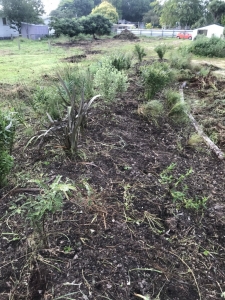
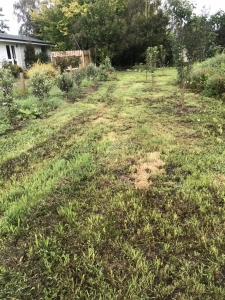
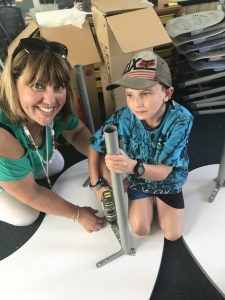
Health Statement:
Section 60B of the Education Standards Act 2001 requires schools to consult with the school community every two years about the content of the Health and Physical Education Curriculum.
This legislation recognises that members of communities have many different views, beliefs and customs; and that these will impact on what people see as important and what they are comfortable with being taught to their children. This legislation acknowledges that people will have strong and perhaps polar opposite views about some aspects of the health curriculum. Therefore, schools are expected to ascertain the views of the school community regarding the way in which the health curriculum should be implemented.
The following is our statement about Health Education at Reporoa Primary School based on our 2017 consultation.
Reporoa Primary School will implement a programme of Health Education based on the New Zealand Curriculum and in keeping with the school’s charter and values. The focus of the programme will be to give our students the knowledge, skills and attitudes to maintain and enhance well-being. Students will recognise social and societal influences on well-being and be given opportunities to take action to promote their own and
others’ well-being. In delivering Health Education, Reporoa Primary School teachers will use a range of appropriate teaching strategies that engage students and enable development of the key competencies, while taking opportunities to integrate Health Education learning with other aspects of The New Zealand Curriculum.
Milk in schools:
This year we have opted out of the ‘milk in schools’ programme as there were not enough children wanting milk. It was also causing a rubbish issue in the playground. We will review this during the year.
Reminder: Teacher Only Day
On Friday the 9th March we will be having a combined ‘Teacher Only Day’ with the other schools in our Reporoa Community of Learning. The teachers will be joining with staff from Reporoa College, Rerewhaakaitu, Broadlands and Mihi to work on their teaching practice in oral language and writing. Staff will not be on site and school will be closed for our students on that day. Please make other arrangements for your children.
Bus Contract
If your child comes to and from school on the bus, they need to have a bus contract signed by you. They were sent home last week. Please read, sign and return to school ASAP. Alternatively, you can click on the link below for a copy in case it is lost at the bottom of a school bag!
I am… by Stylez Grant:
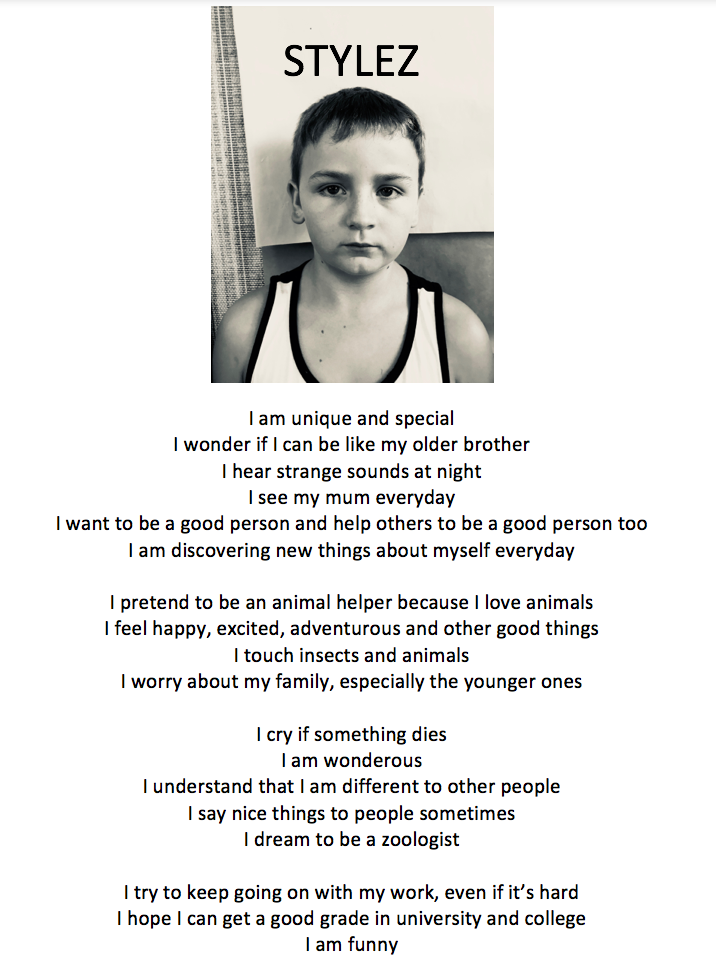
 Stars of the week:
Stars of the week:
Ka Rawe te mahi (awesome work) to Logan who is doing so well with Mrs Dobson in his reading and writing, Marley who wrote an excellent ‘I am’ poem, and Jaxon who designed a great Reporoa class shield.
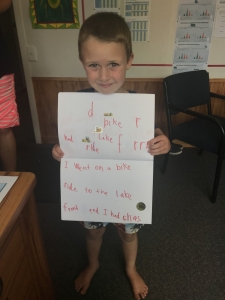

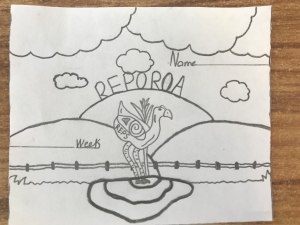
 Sports:
Sports:
Unfortunately the Senior Swimming Competition was postponed due to terrible weather. We will now hold it on Monday 26th February at 10am.
Thank you to those who returned their RATS duathlon entries, you are now entered in the race!
Mrs McIndoe.
Calendar:
|
Lost Property:
Our lost property pile is growing every day – remember to come down and check it.
Health: We have a few suspected cases of Chicken Pox at our school
LUNCHES
We have lunches for sale every Friday – a menu is at the school office
Nãku i runga i aku mihi ki a koe – Yours with thanks
Richelle McDonald
and our team –Jill, Phil, Susannah, Rachel, Julie, Maureen, Heather, Tina, Mary, Kim, Ross & Stevie.



Recent Comments